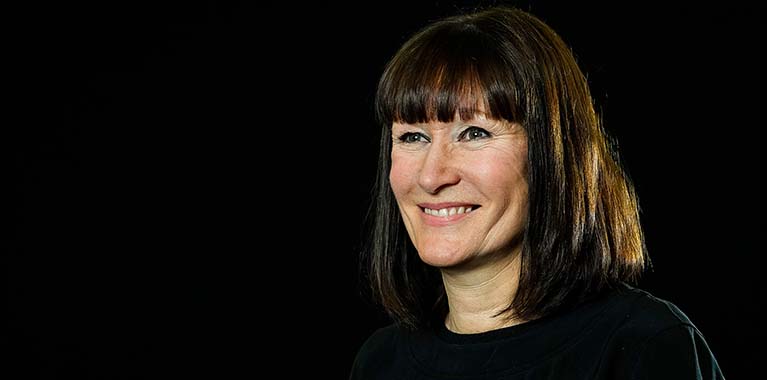Bradshaw address 2023: life breathed into GBR reform

Like the Grammy awards just two days before, last night (07 February 2023) saw the great and the good of the railway industry gather together on the metaphorical red carpet to hear Transport Secretary Mark Harper MP deliver the 2023 Bradshaw Address.
The Address has generated plenty of headlines about the role of the private sector, ticketing reform and placing the railway back on a sustainable financial footing. But what does this really mean for the industry? Here's our take:
- Ending stagnation: As Lizzo's Grammy-winning record of the year is titled, "About Damn Time" is a refrain many will be feeling this morning. It's optimistic that after many years of stagnation, which has caused a sense of malaise in the industry, momentum may now be gathering to take forward the proposals in the Plan for Rail (as it now seems to be named, having previously had the former Transport Secretary's name attached to it).
- Enhancing private involvement: As Beyoncé's winning dance/electronic album title suggests, it's a "Renaissance" for the private sector. The role of the private sector in increasing passenger numbers pre-pandemic has a key role to play in the future railway: driving revenue, bringing innovation and investment, such as in rolling stock. "We shouldn’t be afraid to let managing directors of train operating companies actually manage and direct their operations." will no doubt be met with cheers in operating companies across the land. Harper promises the opportunity for operators to deliver something more interesting and be incentivised to do so, whilst making sure customers are first in the minds of the industry. Risk and reward needs to sit in the right place – something the industry has been saying for many years and a key message emerging from our recent survey. It isn't just about passengers: a Strategic Freight Unit will also be created with better safeguards, national coordination and setting a national freight growth target. Open access services also get a mention, with more "where it benefits passengers and taxpayers". That's a very important caveat as, to date, the impact on existing government-procured services has often been a key factor in decision-making. We will need to see more detail on this, including the role of the independent regulator, the Office of Rail and Road.
- National Rail Contracts (NRCs): To slightly stretch the reference, these are Brandi Carlile's "Broken [Horses]". A temporary stopgap measure as we came out of the pandemic, Harper describes these as "overcentralised" and will be phased out. The long-mooted move to Passenger Services Contracts is back on the cards, intended to "balance the right performance incentives with simple, commercially driven targets". Again, if performance incentives are outcomes-focussed, rather than inputs being micro-managed, this is likely to be welcomed, but only time will tell. The role of the private sector remains central to the vision set out by Harper, with the support of the Prime Minister and Chancellor: "To reinvigorate the sector, drive innovation and most importantly, attract more customers to the railway. It will do so in partnership with GBR."
- GBR: Like Megadeth's nominated "best metal performance", "We'll Be Back", so too is GBR, with Harper recommitting to implementing it and progressing the GBR legislation paused last year, which many saw heralding the death-knell of GBR. Harper has sought to dispel some of the industry speculation that has been circulating: GBR will be an arm's length body of government and definitely not a Network Rail 2.0 or British Railways. With a commitment to take politics out of the railways, GBR's role will carefully balance infrastructure and operations. Only time will tell whether this aspiration will be delivered and a lot of this will be driven from the very top of the new organisation. We assume that there remains the commitment to deliver the industrial structural change set out in the Plan for Rail (as it is now known). For those interested in where the new GBR HQ will be following the public competition, that will be announced in the summer.
- Ticketing reform: We couldn't not squeeze in an Abba reference, as who doesn't love a bit of Abba, and so the "best pop vocal album" nominee's "Voyage" is what the industry is hoping for more of, with simpler ticketing structures. The aspiration is to place the customer at the heart of the industry and make buying a ticket as hassle-free as possible. As publicised in newspapers over the weekend, single leg pricing (trialled on LNER since 2020) will be the way forward for our railways, with single fares always being half the price of a return. Pay-as-you-go ticketing across 52 stations in the South East will also be completed this year for those using Chiltern, London Northwestern and c2c services. A demand-based pricing trial on some LNER services is also proposed, taking on board learning from the aviation sector. These seem like positive initial developments, but these initiatives don't yet simplify all of the complexity that sits at the heart of the industry ticketing arrangements.
- Property: In the title of Rüfüs Du Sol's nominated "best dance/electronic album", there may need to be a "Surrender" of land adjoining the railway for development and other commercial opportunities to generate revenue for the railway. This will necessitate private sector investment, which will be an interesting opportunity.
The Bradshaw address recognises the need for "fundamental reform" of our railways. With a general election in just under 2 years, the clock is ticking fast and there is plenty to be doing in that time. But the next 2 years promises to be very exciting times for the railway. In stark contrast to Adele's nominated song, the next 2 years are unlikely to be "Easy on me". Finally, at Tammy's request, we also had to refer to Harry Styles' album of the year winner, "Harry's House", so answers on a postcard/email if you can fit that into theme…
You can find the full text of the 2023 Bradshaw address here.




